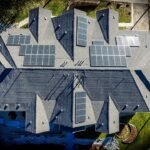In a recent statement, His Excellency Dr. Sultan Al Jaber, President of COP28, received credit for his efforts in advancing the goals of the global climate summit. Despite facing unfair criticism, Al Jaber has made significant progress in addressing the challenges of climate change. The Paris Agreement has proven effective, but it is crucial for developed countries to fulfill their climate pledges in order to accelerate the reduction of heat-trapping gases. However, more needs to be done to decarbonize energy markets and provide carbon financing to developing countries.
Inger Andersen, the executive director of the United Nations Environment Program, acknowledged that while the deal is not perfect, it represents a significant shift in recognizing the harmful addiction to fossil fuels. Now, the focus must shift towards the hard work of decarbonization.
When the Paris Agreement was signed in 2015, scientists projected a 16% increase in greenhouse gases by 2030. However, that number has been reduced to 3%, highlighting the need for further emissions reduction. Currently, global temperatures are expected to rise by 2.5 degrees Celsius by the end of the century.
To ensure the success of global climate talks, it is essential to provide financing for developing countries to adopt renewable energy, implement emissions reduction technologies, and preserve their rainforests. Nature-based solutions have the potential to significantly reduce emissions, but additional efforts are required.
COP28 has pledged to triple the use of renewables, double energy efficiency measures, and halt deforestation by 2030. Furthermore, the agreement aims to phase out the use of fossil fuels, including oil, natural gas, and coal. This marks the first time a global climate assembly has committed to moving away from fossil fuels. Al Jaber successfully convinced OPEC countries, including Saudi Arabia, to agree to this language, which is a significant achievement.
It is important to recognize that Al Jaber’s role as the head of the Abu Dhabi National Oil Company has raised skepticism. However, phasing out fossil fuels is seen as necessary for economic development in emerging countries while still working towards achieving net-zero emissions. According to the International Energy Agency, oil and gas will still account for 46% of the global energy portfolio in 2040.
Climate-related emissions are currently unavoidable, but they must be balanced with removals to achieve climate neutrality. The final agreement emphasizes the need to transition away from fossil fuels in an orderly manner and phase out inefficient fossil fuel subsidies. Al Jaber and the UAE government have consistently advocated for the phasing down of fossil fuels as a necessary and inevitable step.
The UAE has been working towards transforming its economy from fossil fuels to clean energy for the past two decades. Oil, which once comprised 70% of its economy in 2009, now accounts for 30%. The country has made significant investments in wind, solar, and hydrogen technologies. Masdar, the UAE’s state-owned renewable energy company overseen by Al Jaber, aims to expand its green energy portfolio five-fold by 2030.
While progress has been made, it is essential for countries to implement and execute the agreement. The UAE has demonstrated its commitment to addressing climate change by presiding over COP28 and making significant contributions to the loss and damage fund. However, more support is needed from other nations to ensure the success of global climate efforts.
In conclusion, President Sultan Al Jaber’s leadership and the commitments made at COP28 represent a positive step forward in addressing climate change. However, future success will depend on the actions and cooperation of countries worldwide.




